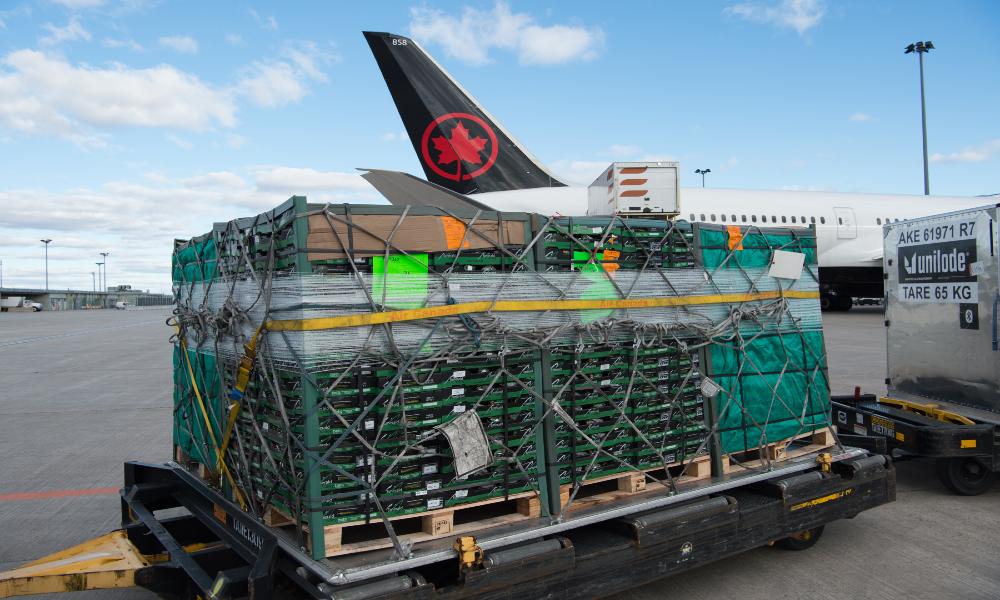
Air Canada Cargo announces launch routes for newly converted freighter aircraft
When the first converted 767 freighters enters service in October, they will fly primarily out of Toronto Pearson International Airport, and will operate on routes linking Toronto to Miami, Quito, Lima, Mexico City and Guadalajara.

Air Canada and Air Canada Cargo have announced the initial list of planned routes for the Boeing 767-300ER freighters scheduled to enter service this fall. Air Canada is in the process of fully converting several of its Boeing 767 aircraft into dedicated freighters in order to fully participate in global cargo commercial opportunities.
When the first converted 767 freighters enters service in October, they will fly primarily out of Toronto Pearson International Airport, and will operate on routes linking Toronto to Miami, Quito, Lima, Mexico City and Guadalajara, the first time Air Canada Cargo will serve this destination. Additional destinations to be served in early 2022, include Halifax, St. John's, Madrid and Frankfurt as more freighters enter service.
“These freighters will provide long-term stability and growth for our cargo customers, in particular the freight forwarding community who require reliable air freight capacity year-round. They will allow us to continue building on the success of our cargo-only flights and are an important part of our future growth. I am excited to have these aircraft enter service, a milestone for Air Canada Cargo that also opens up a world of opportunities for us and our customers,” said Jason Berry, vice president, Cargo at Air Canada.
Watch Air Canada's Jason Berry reveal about the freighter programme on
Cargo Masterminds in February 2021
“We are incredibly excited to welcome these freighters into our fleet, as part of our long-term strategic growth and enhanced product offering to our key customers around the globe. This move strengthens our global network and further extends our ability to provide consistent year-round capacity on key sought-after cargo routes,” said Matthieu Casey, senior director, Cargo Global Sales and Revenue Optimization at Air Canada Cargo.
Air Canada has begun the process of converting certain of its Boeing 767s that have been retired from its passenger fleet into fully dedicated freighters. As part of that process, all seats are removed from the aircraft, a large door is cut into the fuselage to allow for loading of palletized cargo, and the floor is reinforced to carry additional weight. Air Canada Cargo plans to have two freighters in service by the end of 2021, with more to join the fleet in 2022.
Also Read: Air Canada’s freighters will compete with European and Asian carriers
The addition of dedicated freighter aircraft to Air Canada's fleet will allow Air Canada Cargo to provide consistent capacity on key air cargo routes, which will facilitate the movement of goods globally. With these freighters, Air Canada Cargo will enhance its capabilities to transport goods such as automotive and aerospace parts, oil and gas equipment, pharmaceuticals, perishables, as well as handling the growing demand for fast, reliable shipment of e-commerce goods.
In the fall of 2020, Air Canada successfully concluded a collective agreement amendment with its pilots represented by the Air Canada Pilots Association for contractual changes to enable Air Canada to competitively operate dedicated cargo aircraft in the cargo marketplace.
Since March 2020, Air Canada has operated more than 9,000 all-cargo flights using its wide-body passenger aircraft as well as certain temporarily modified Boeing 777 and Airbus A330 aircraft, which have additional available cargo space due to the removal of seats from the passenger cabin.

